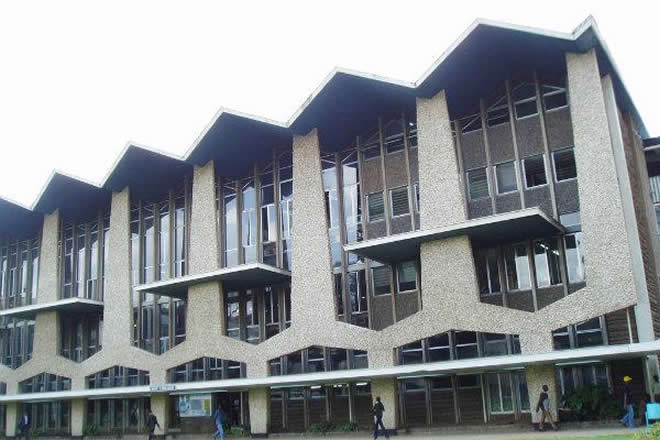
University Of Nairobi

Tuesday, June 30, 2015
"We will come for you before you come for us," NCTC Director Isaac Ochieng' told a university audience yesterday.
He said he has"evidence some students are on the payroll" of the two terror groups in Nairobi and elsewhere.
He was addressing a forum on countering violent extremism hosted by the University of Nairobi and the Interior Ministry at the university's Taifa Hall.
He surprised panelists, including Interior PS Monica Juma and Vice Chancellor Peter Mbithi ,when he said ISIS is actively recruiting Kenyans on college and university campuses.
"We have serious evidence some students here in this hall are on the payroll of ISIS in Syria and Iraq," Ochieng said.
The counter terrorism center fallsiunder the spy agency, the National Intelligence Service, headed by Director General Philip Kameru.
He did not elaborate on the "evidence" or say how many students are estimated to be on terror payrolls.
Ochieng also did not say what the government is doing with its "evidence".
"There is a very serious resurgence of homegrown terrorism aimed at establishing an East African Caliphate by al Qaeda and al Shabaab. You think that we don't know. We will come for you before you come for us," Ochieng told the audience that included hundreds of students and experts on international terrorism from around the world.
Addressing student-terrorists, he asked: "Why do you participate in a war that is not yours? Why do you cross borders to join a terrorist group? Leave that thing alone."
Scholars need to debunk the "poisonous" ideology of terror groups, Ochieng said.
"As academics, you must do your part in fighting radicalisation and violent extremism in our learning institutions," he urged.
Interior PS Monica Juma did not address Ochieng's assertion of terrorists recruiting on Kenyan campuses but said terrorism remains "the premier global challenge" today.
"They aim to destroy and perpetuate violence against those they consider the opponent," she said.
Prof. Michael Chege, a lecturer in Public Policy and Political Economy of International Development at the University of Nairobi, said military interventions against terrorism and radicalisation "are not always the best solution".
"We must look at what drives youth to extremism. The push and pull factors must be addressed," he said.
Chege said arguments that Kenya has come under al Shabaab attack because of the KDF intervention in Somalia is "nonsense".